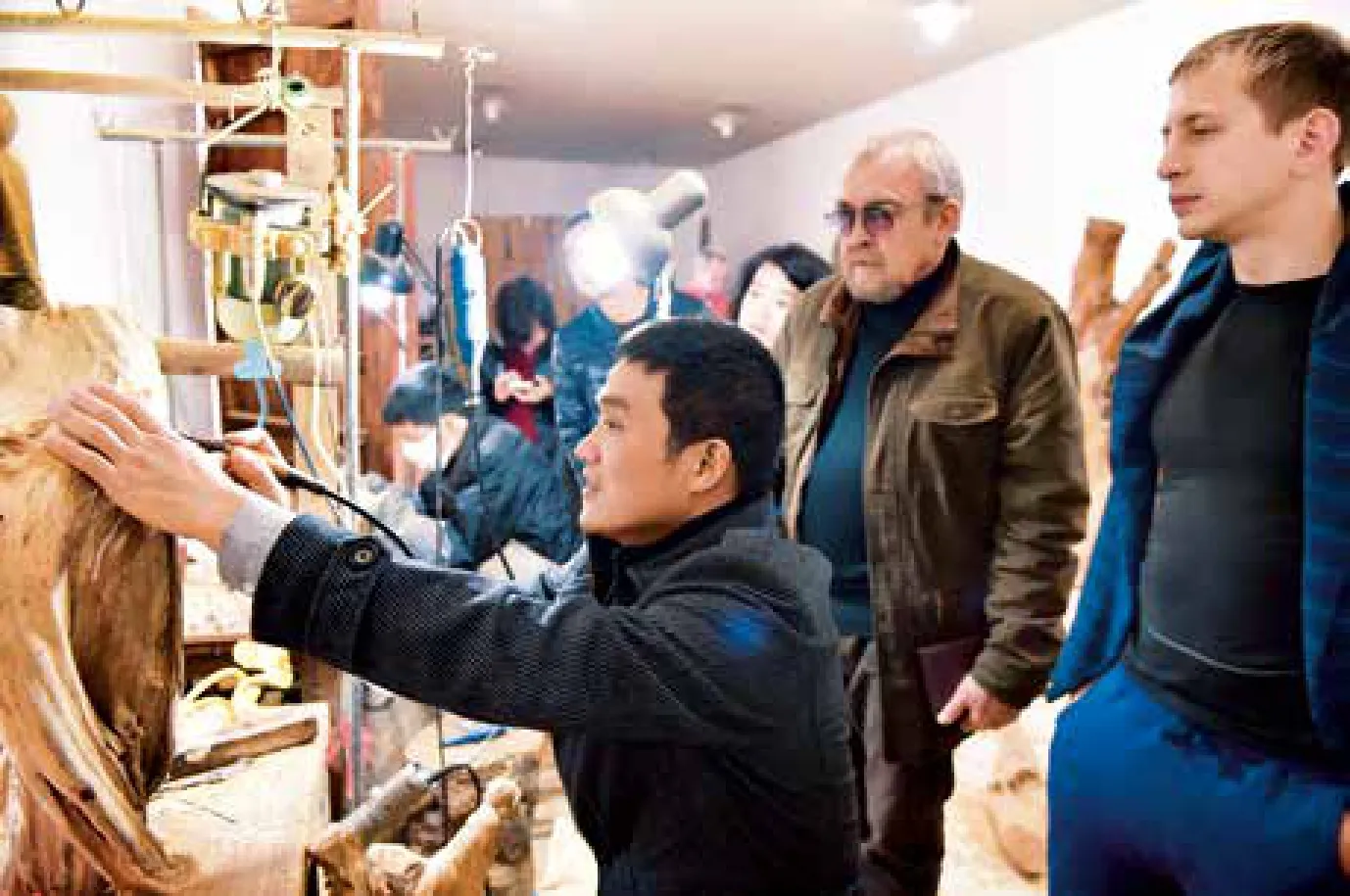New Chapter in China-Ukraine Cultural Exchanges
By Lyu Bin
New Chapter in China-Ukraine Cultural Exchanges
By Lyu Bin
March 2015 saw Fotang, an ancient rural town in Yiwu, an international trade powerhouse in central Zhejiang, unveil the first workshop of Ukrainian National Union of Artists (UKUA) in the town’s restored ancient houses. On November 21, an exhibition of the artworks by Chinese and Ukrainian artists was opened to public visitors at the site. The artists from the two countries talked with each other and shared tips and ideas.
The cultural ties between the two countries go back to a long time ago. Despite the long distance from each other, the two have a lot in common. Both are ancient agricultural civilizations and both have arts and crafts that go back to ancient times. In remote ages, the Silk Road connected the two countries. Silk from the oriental country was cherished in Ukrainian life.
In the 1950s, the Chinese people became keenly aware of the glory of artworks from Ukraine. The artists impacted the Chinese art and art education profoundly. Ilya Repin (1844-1930), the most renowned Russian artist of the 19th century, was a native of Ukraine. His Barge Haulers on the Volga and other works are admired in China. In the 1950s, Ukrainian artists were in the newly-founded people’s republic to help set up higher art education institutes.
In recent years, the cultural exchanges between the two countries have expanded. Artists from the two countries have often worked together in sketching. Art teachers from China have taught in Ukrainianschools and artists from Ukraine have taught in China. Altogether, hundreds of Chinese students have studied art in Ukraine. In March 2015, the administration of Fotang Culture and Tourism Zone partnered with UKUA for establishing a workshop in Fotang, the first one in China by the UKUA.

乌克兰艺术家感受中国木雕魅力。Ukrainian artists watch as a Chinese artist works on a large woodcarving piece.
The UKUA picked Fotang because of its allure in culture and history.
In November 2013, a group of Ukrainian artists did a field study in Zhejiang. They sketched in Jinhua, Yiwu, Wuyi, Dongyang and Lishui, exposing their artistic sense and sensibility to the picturesque beauty of this part of the province. Especially, they were fascinated by Fotang.
In August 2014, Yiwu City invited a group of Ukrainian artists to visit Qinghai, Tibet and Yiwu. In November, their works were exhibited at both Yiwu and Fotang. In April 2014, Ukrainian artists exhibited their works at the 10th Yiwu Culture and Art Fair and caused a sensation.
The exhibition in November 2015 in Fotang was a big event. Nearly 200 artworks by 15 Ukrainian artists who had visited China over the past two years were on display. The artworks included oil paintings, sculpture, ceramics and woodcutting.
Alexander, a celebrated Ukrainian sculptor, has a special liking for Yiwu and Fotang in particular. His Candy for Chicken Feather reproduces the legendary business tradition of Yiwu peddlers who bartered the homemade candy for feather which they brought home to process and make into new products for profit. It was his first sculpture made in China.
This artwork reflects his understanding of Yiwu. His first visit to Yiwu was in March 2015. He was impressed by the city’s vitality as an international trade center, a total metamorphosis from a poverty-stricken region. He was also impressed by the similar sculpted works made by other sculptors who tried to recapture the city’s barter tradition. After close observation, Alexander became aware of one defect these sculptures seemed to share: they were all static. He wanted to create a work that would express the hope and determination and hard work for a better life and better future for family. Following this understanding, he set down to working. And his sculpture perfectly shows his understanding. A peddler leaves home and goes on his way to the outside world, believing he will come back and his family will have a better tomorrow.

